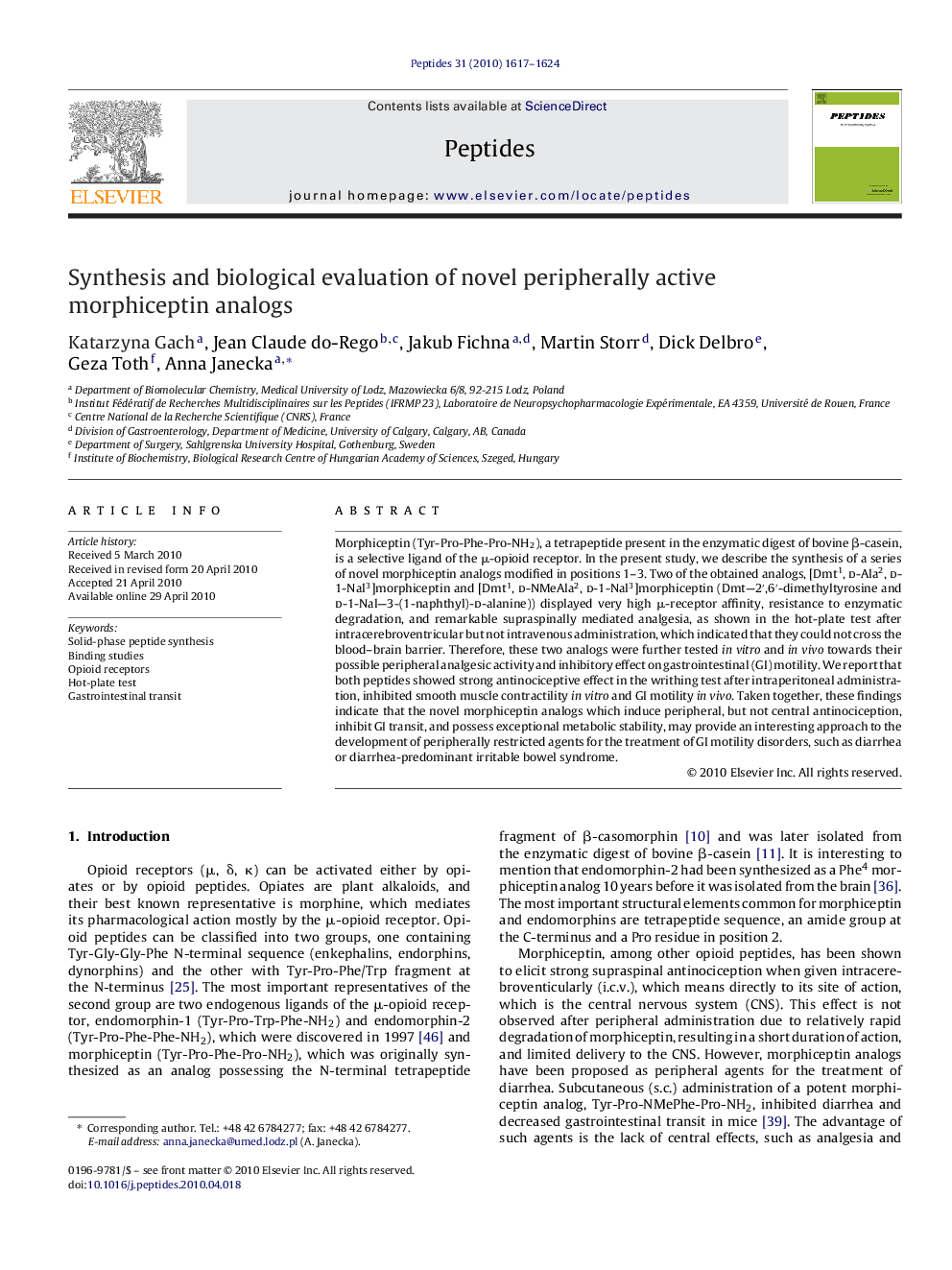| Article ID | Journal | Published Year | Pages | File Type |
|---|---|---|---|---|
| 2006964 | Peptides | 2010 | 8 Pages |
Morphiceptin (Tyr-Pro-Phe-Pro-NH2), a tetrapeptide present in the enzymatic digest of bovine β-casein, is a selective ligand of the μ-opioid receptor. In the present study, we describe the synthesis of a series of novel morphiceptin analogs modified in positions 1–3. Two of the obtained analogs, [Dmt1, d-Ala2, d-1-Nal3]morphiceptin and [Dmt1, d-NMeAla2, d-1-Nal3]morphiceptin (Dmt—2′,6′-dimethyltyrosine and d-1-Nal—3-(1-naphthyl)-d-alanine)) displayed very high μ-receptor affinity, resistance to enzymatic degradation, and remarkable supraspinally mediated analgesia, as shown in the hot-plate test after intracerebroventricular but not intravenous administration, which indicated that they could not cross the blood–brain barrier. Therefore, these two analogs were further tested in vitro and in vivo towards their possible peripheral analgesic activity and inhibitory effect on gastrointestinal (GI) motility. We report that both peptides showed strong antinociceptive effect in the writhing test after intraperitoneal administration, inhibited smooth muscle contractility in vitro and GI motility in vivo. Taken together, these findings indicate that the novel morphiceptin analogs which induce peripheral, but not central antinociception, inhibit GI transit, and possess exceptional metabolic stability, may provide an interesting approach to the development of peripherally restricted agents for the treatment of GI motility disorders, such as diarrhea or diarrhea-predominant irritable bowel syndrome.
